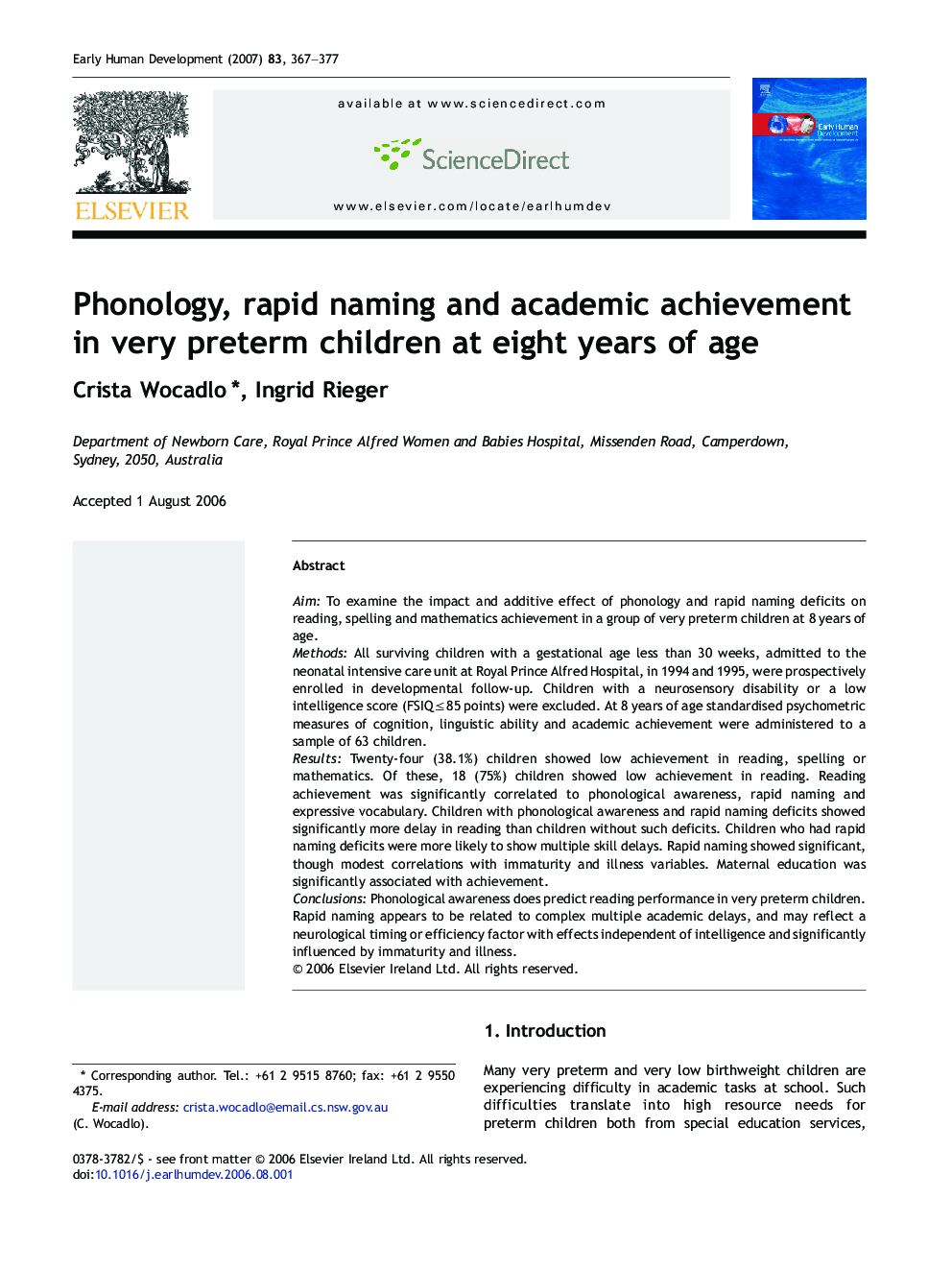| Article ID | Journal | Published Year | Pages | File Type |
|---|---|---|---|---|
| 3917721 | Early Human Development | 2007 | 11 Pages |
AimTo examine the impact and additive effect of phonology and rapid naming deficits on reading, spelling and mathematics achievement in a group of very preterm children at 8 years of age.MethodsAll surviving children with a gestational age less than 30 weeks, admitted to the neonatal intensive care unit at Royal Prince Alfred Hospital, in 1994 and 1995, were prospectively enrolled in developmental follow-up. Children with a neurosensory disability or a low intelligence score (FSIQ ≤ 85 points) were excluded. At 8 years of age standardised psychometric measures of cognition, linguistic ability and academic achievement were administered to a sample of 63 children.ResultsTwenty-four (38.1%) children showed low achievement in reading, spelling or mathematics. Of these, 18 (75%) children showed low achievement in reading. Reading achievement was significantly correlated to phonological awareness, rapid naming and expressive vocabulary. Children with phonological awareness and rapid naming deficits showed significantly more delay in reading than children without such deficits. Children who had rapid naming deficits were more likely to show multiple skill delays. Rapid naming showed significant, though modest correlations with immaturity and illness variables. Maternal education was significantly associated with achievement.ConclusionsPhonological awareness does predict reading performance in very preterm children. Rapid naming appears to be related to complex multiple academic delays, and may reflect a neurological timing or efficiency factor with effects independent of intelligence and significantly influenced by immaturity and illness.
